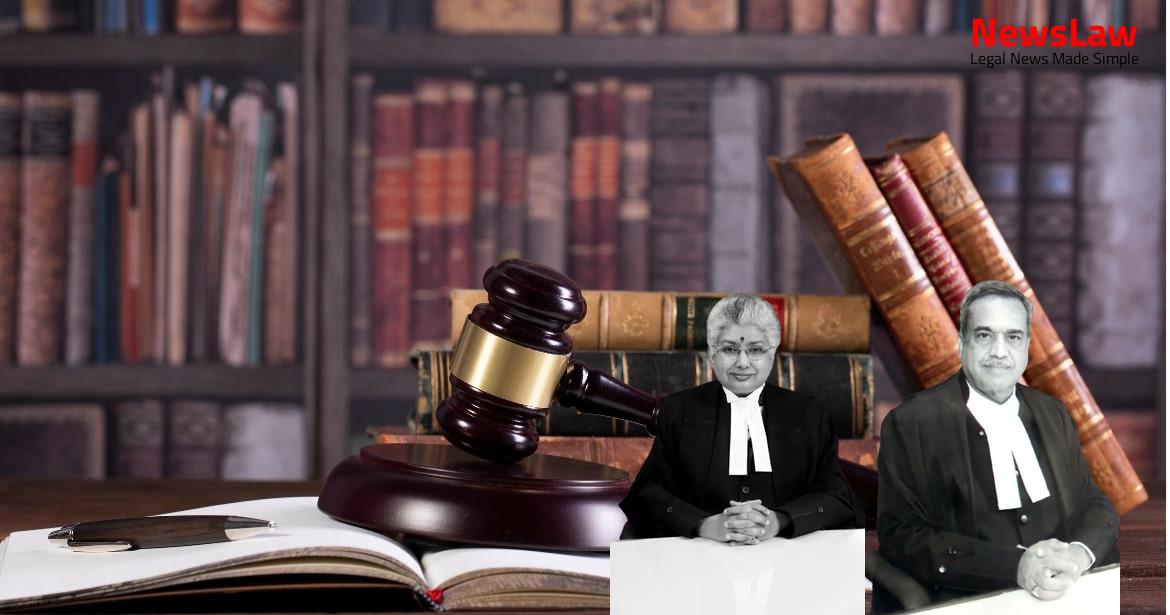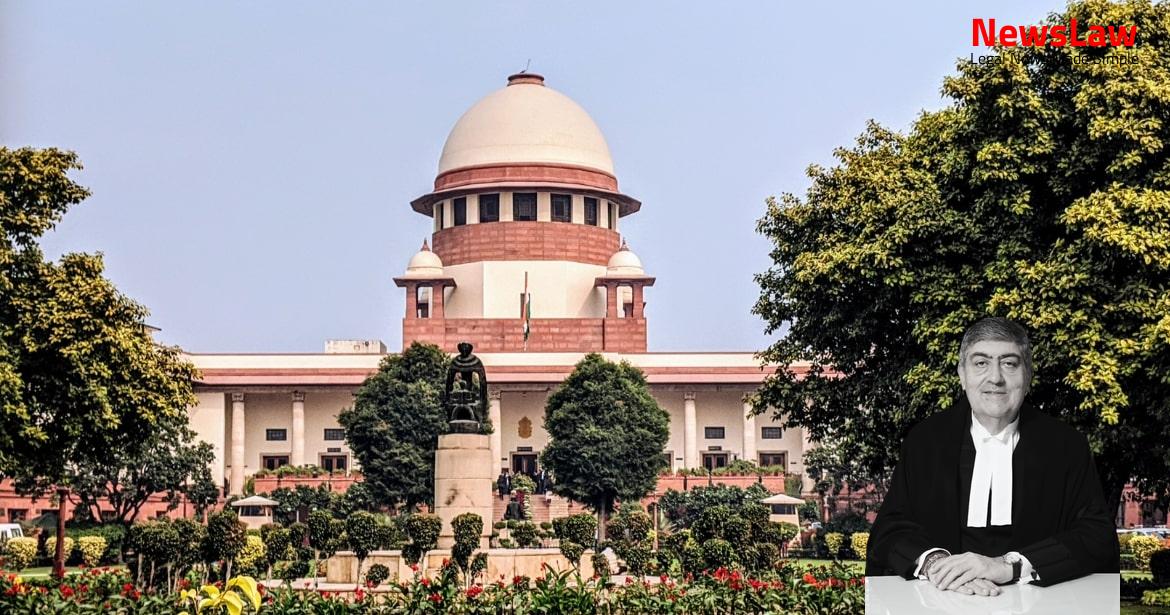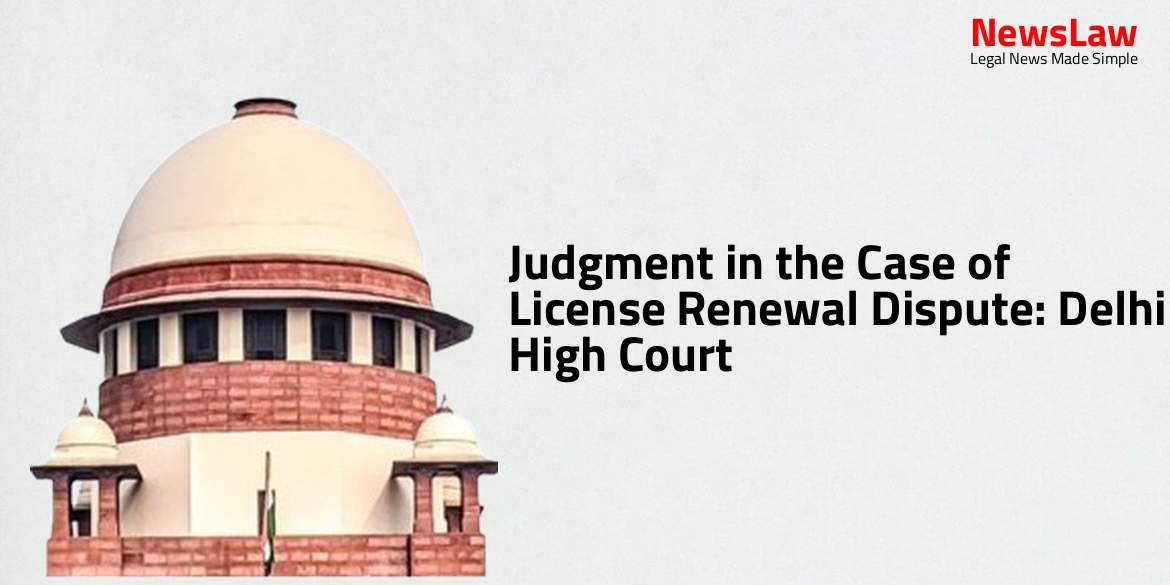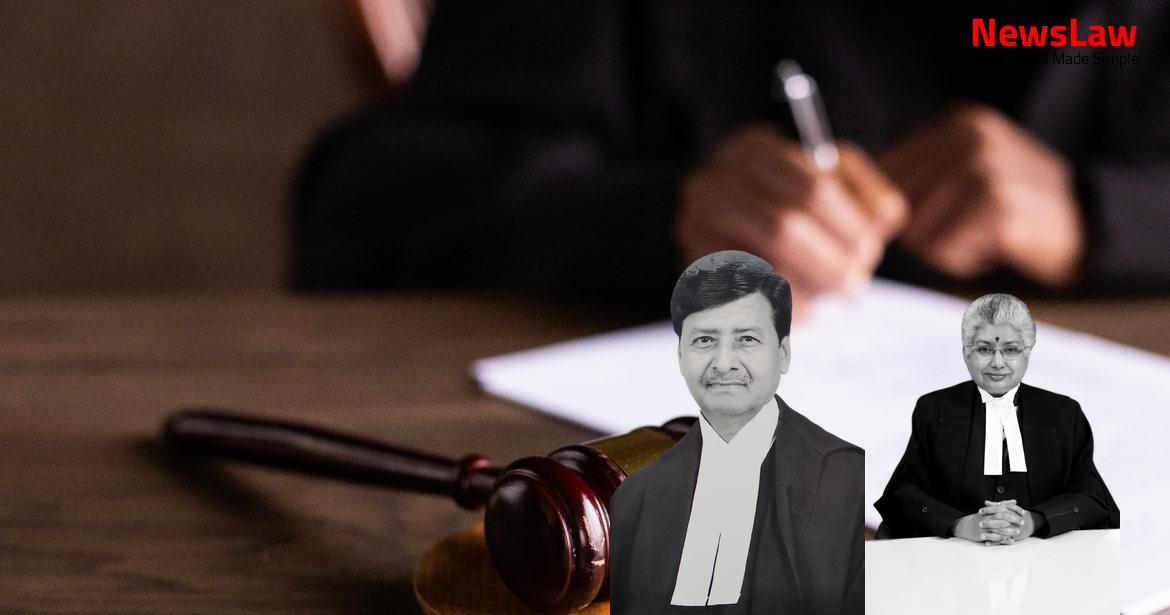In a recent legal case, the court examined the significance of utilizing statutory remedies in arbitration disputes. This case serves as an important example of the court’s emphasis on following the prescribed legal procedures and remedies. The court’s thorough analysis and decision shed light on the proper legal course of action in such situations.
Facts
- Dispute arose between parties subject to arbitration before the learned Arbitrator.
- High Court remanded the matter for de novo consideration.
- Original respondents directed to pay original claimants Rs.12,46,663/- in the award made by the learned Arbitrator.
- Original claimant dissatisfied with the High Court judgment setting aside the award and remanding the matter.
- The learned Arbitrator’s award in Regular Civil Suit No.1022/1996 was declared by the court
- The original claimant filed an application based on the award
- The court passed a decree in line with the award
- The decree was made by the court on the application of the original plaintiff
Also Read: Ruling on Circumstantial Evidence in Murder Case
Arguments
- The original claimant is feeling aggrieved and dissatisfied with the judgement and order passed by the High Court.
- The claimant has preferred the present appeal against the impugned judgement and order.
- It is opined that the High Court should not have entertained the writ petition under Articles 226 and 227 of the Constitution of India without availing the alternative statutory remedy available by way of appeal under the provisions of the Act.
Also Read: Challenging Legal Presumptions in Negotiable Instrument Cases
Analysis
- Statute provides a further remedy by way of appeal against the award and the order making the award a decree of the court.
- High Court should not have entertained the writ petition.
- High Court should not have set aside the award in a writ petition under Articles 226 and 227 of the Constitution of India.
- Learned counsel for the respondent prayed for liberty to take further recourse to law against the award and court order.
- The appeal succeeds, setting aside the High Court’s judgment and order.
- Liberty is reserved for the respondent to pursue legal action under the Arbitration Act, 1940.
- The respondent must initiate proceedings within four weeks, without the issue of limitation being raised.
- The High Court’s judgment and order are unsustainable and are quashed.
Also Read: Legal Analysis Critique in High Court’s Quashing Order
Decision
- The present appeal is allowed to the extent mentioned.
- Amount already paid to the appellant will be subject to the outcome of future proceedings by the respondent.
Case Title: M/S. KELKAR AND KELKAR Vs. M/S. HOTEL PRIDE EXECUTIVE PVT. LTD. (2022 INSC 507)
Case Number: C.A. No.-003479-003479 / 2022



